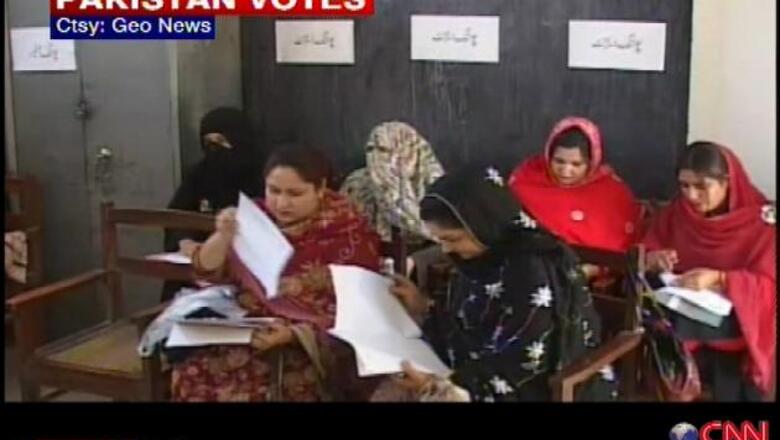
views
Islamabad: Pakistanis began voting on Saturday for a landmark democratic transition of power after a bloody campaign, marred by Taliban violence that killed over 100 people, forced key parties to abandon rallies and large gatherings. Polling for 2013 general election started across the country where masses will cast their vote to elect their representatives for the next five-year term.
Long queues of people were seen outside polling stations well before the start of polling. Tight security arrangements have been made across the country to ensure peaceful, free and transparent elections. The 63-year-old Nawaz Sharif-led PML-N is widely tipped to emerge as the single largest party in the polls. He could end up becoming a premier for the third time if he is able to cobble together a coalition comprising the religious, nationalist and right wing parties that are expected to do well in the provinces.
A spirited campaign over the past few weeks by cricketer-turned-politician Imran Khan, 60, has boosted the chances of his Pakistan Tehrik-e-Insaf party, particularly in Punjab province which has 147 - or more than half - of the 272 parliamentary seats for which polls will be held.
Some experts point out that Khan, who is hospitalised after having fallen down from a forklift during campaign, could gain some sympathy votes. The National Assembly or lower house of parliament has a total of 342 seats and the rest will be allocated to women and minority candidates nominated by parties.
Over 86 million people are registered to vote but elections in Pakistan have traditionally registered low turnouts. A total of 4,670 candidates are standing for parliamentary elections while nearly 11,000 are running for the four provincial assemblies.
Parties like the Pakistan Tehrik-e-Insaf, Pakistan Peoples Party and PML-N have sought to attract many youths who will be voting for the first time. The PML-N and Khan's party were the only major political forces that were able to conduct a nationwide campaign after the banned Tehrik-e-Taliban Pakistan warned that it would target leaders and rallies of the secular-leaning PPP, Awami National Party and Muttahida Qaumi Movement, which were part of the outgoing coalition.
This would be the first time in Pakistan's history that a democratic transition of power would take place. The previous PPP-led government had for the first time completed its five year term in the country that has seen numerous military coups.




















Comments
0 comment